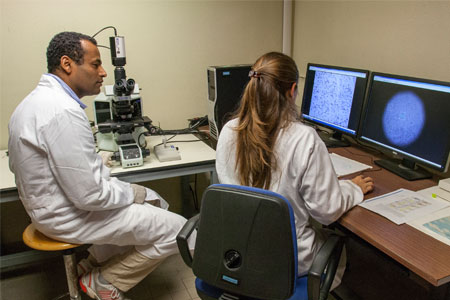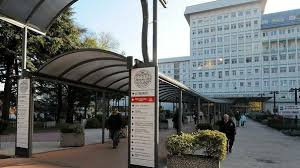- Authors:
-
Oggiano, Am; Clemente, Mg; Cuzzolin, L; Locci, C; Piredda, Cm; Schwartz, Kb; Antonucci, R
- Title:
-
Pharmacological treatment of ceftriaxone-related cholelithiasis in children: is it worthwhile?
- Year:
-
2019
- Type of item:
-
Articolo in Rivista
- Tipologia ANVUR:
- Articolo su rivista
- Language:
-
Inglese
- Format:
-
Elettronico
- Referee:
-
Sì
- Name of journal:
- JOURNAL OF PEDIATRIC AND NEONATAL INDIVIDUALIZED MEDICINE
- ISSN of journal:
- 2281-0692
- N° Volume:
-
8
- Number or Folder:
-
1
- Page numbers:
-
e080108-e080108
- Keyword:
-
biliary sludge, children, gallstones
- Short description of contents:
- Ceftriaxone treatment of bacterial infections can be associated with biliary complications, more commonly in children than adults, in a dosedependent manner. This study describes a clinical case series of children with ceftriaxone-related cholelithiasis. We performed a retrospective analysis of cases of ceftriaxone-related biliary complications admitted to the Pediatric Clinic, Department of Clinical and Experimental Medicine, University of Sassari, Italy, during the period 2005-2015. Four children with cholelithiasis occurring during, or soon after, the treatment with ceftriaxone are reported. Case 1 (6-month-old), case 2 (9-yearold) and case 4 (10-year-old) were symptomatic, while case 3 (3-year-old) was asymptomatic. After the ultrasonographic diagnosis of gallstones (cases 1 and 2) or biliary sludge (cases 3 and 4), ceftriaxone treatment was withdrawn, and ursodeoxycholic acid (UDCA) was started in cases 1 and 2. A complete recovery was observed in all but case 1, in whom cholelithiasis was still detectable at one-year follow-up by ultrasonography. This case underwent a triple antibiotic protocol for bacterial meningitis. The protocol included rifampicin, which is known to have an effect in decreasing hepatic concentration of bile salts. Therefore, in this case, both rifampicin and UDCA were of no benefit in preventing or treating ceftriaxone biliary complications. The current pharmacological approach for the treatment of ceftriaxonerelated cholelithiasis seems to be ineffective, likely due to the high calcium content of gallstones. Therefore, the best strategy of intervention for ceftriaxone biliary complications in children remains the prevention of the risk factors.
- Product ID:
-
108102
- Handle IRIS:
-
11562/993958
- Last Modified:
-
November 30, 2022
- Bibliographic citation:
-
Oggiano, Am; Clemente, Mg; Cuzzolin, L; Locci, C; Piredda, Cm; Schwartz, Kb; Antonucci, R,
Pharmacological treatment of ceftriaxone-related cholelithiasis in children: is it worthwhile?
«JOURNAL OF PEDIATRIC AND NEONATAL INDIVIDUALIZED MEDICINE»
, vol.
8
, n.
1
,
2019
,
pp. e080108-e080108
Consulta la scheda completa presente nel
repository istituzionale della Ricerca di Ateneo 








